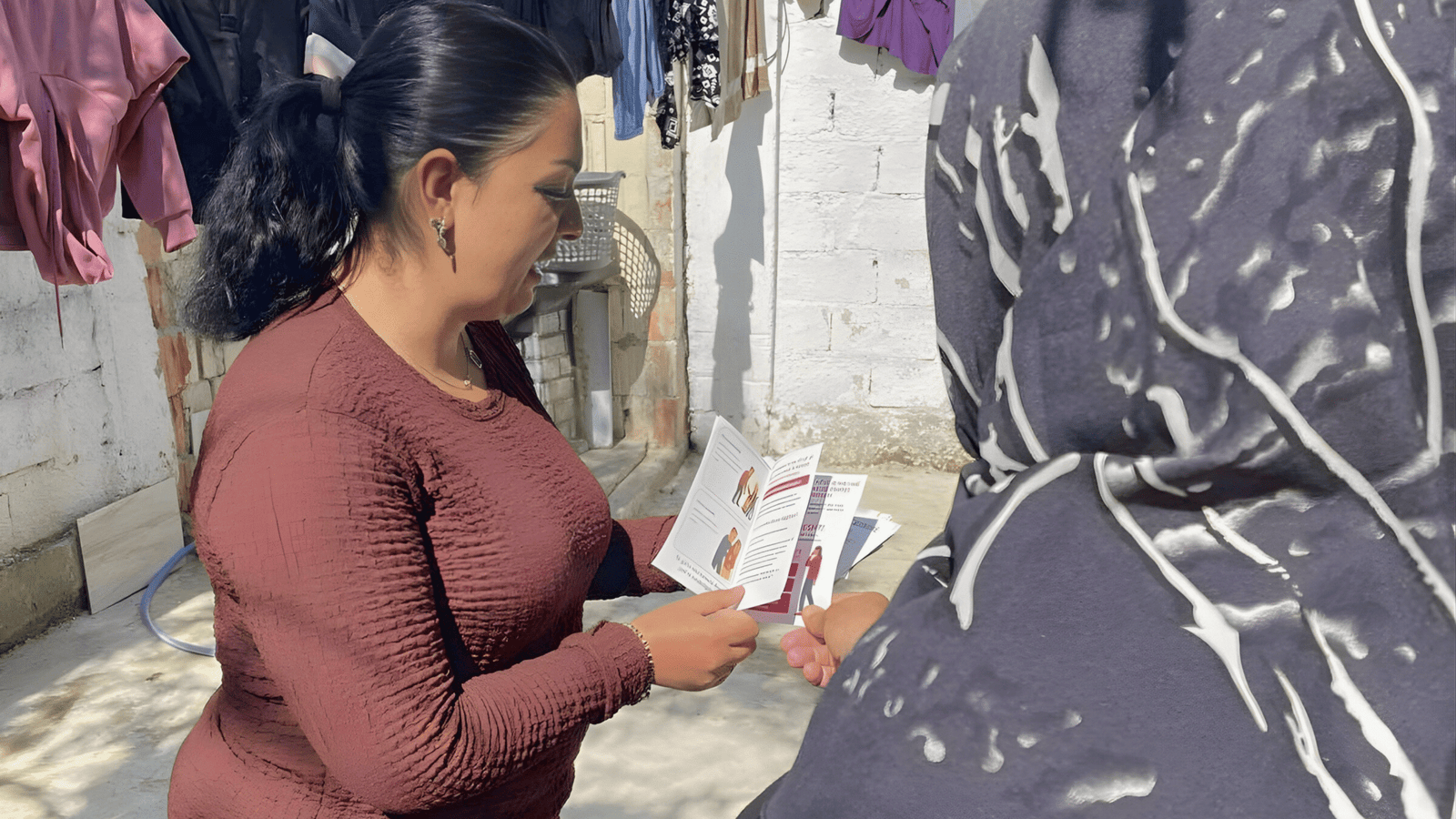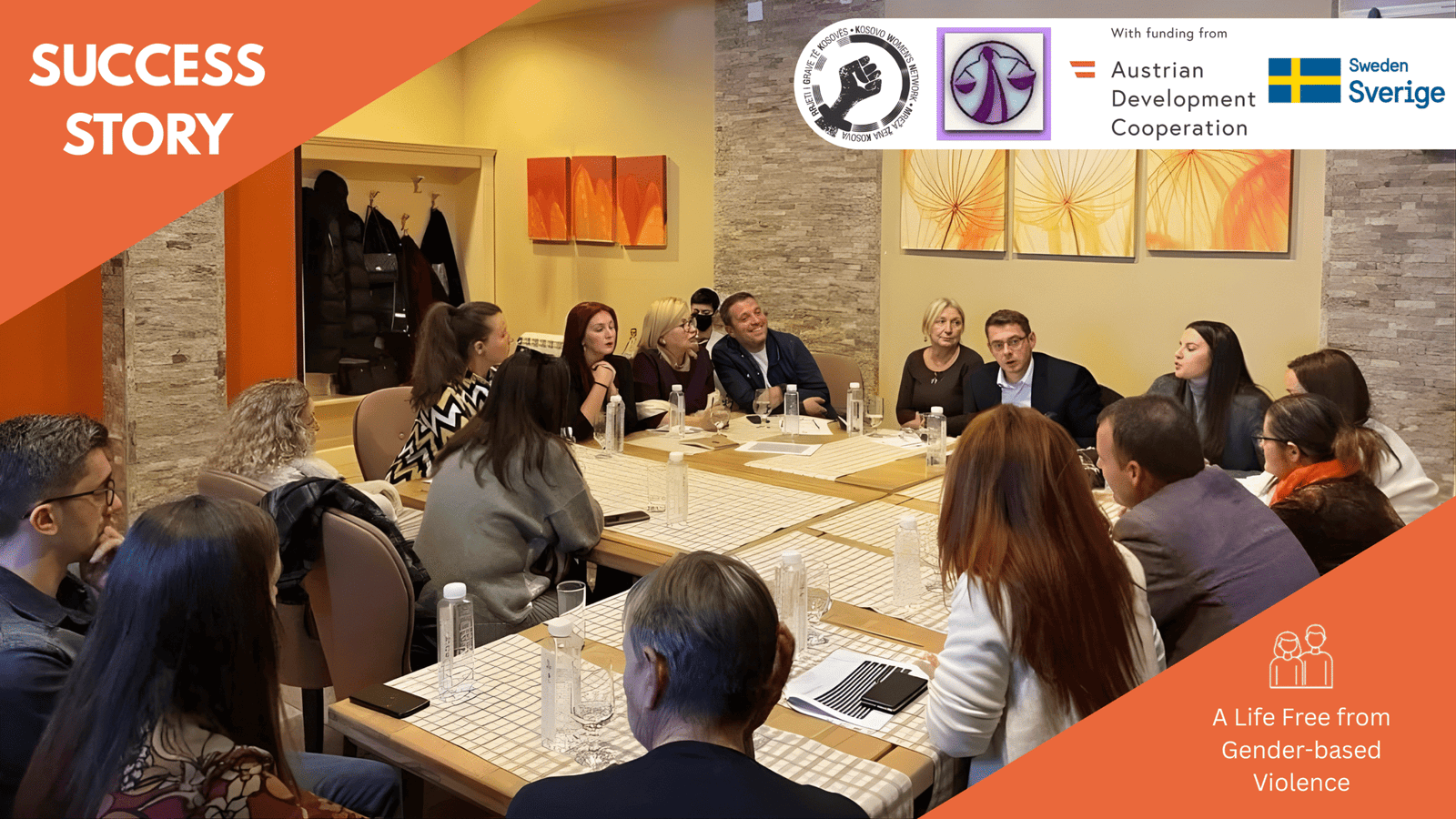In the small rural municipality of Parteš, many women face more than just daily household chores and responsibilities. They often confront long-standing barriers to healthcare that leave their physical and mental well-being in the shadows. “I used to think going to the doctor was only for when you’re very sick,” says Milena, a 48-year-old mother of three from a village in Parteš. “I didn’t know I had the right to ask questions or to take care of my health proactively.”
For many women like Milena, accessing even the most basic health services is difficult. Limited transportation, a lack of information and cultural expectations that women prioritise family needs over their own often mean that their health, especially reproductive and mental health, goes unattended. The Access to Healthcare study by the Kosovo Women’s Network (KWN) found that 91.1% of surveyed women had not had a breast cancer screening in the last five years, and 92.4% had never had a cervical cancer screening. These challenges are compounded for women with lower levels of education and little exposure to public health messaging.
Moravski Biser wanted to address these issues and bring change, particularly for marginalised groups, ensuring better conditions and services that support both physical and mental health. They also aimed to raise women’s awareness of their equal right to healthcare and to challenge and eliminate discrimination against women within the health system.
Through a series of workshops, community discussions, and face-to-face meetings, women in the villages of Parteš began to learn about their rights, the health services available to them, and how to navigate a healthcare system that once felt distant and inaccessible. In total, 25 women attended nine different workshops covering a range of topics, including reproductive health, mental well-being, how to file a complaint if rights were violated, and an overview of Kosovo’s health system and relevant legal frameworks. The sessions created a safe space for honest conversations, shared experiences and, for some, their first real understanding of what self-care can truly mean.
One of the younger participants, Jovana, 26, shared, “Before, I would just accept whatever the nurse or doctor said. Now I feel I can ask, I can understand. I even talked to my mother-in-law about getting a regular check-up.”
The ripple effects of the sessions were visible almost immediately. Not only did participants begin taking steps to use local health services, but they also started sharing what they learned with family and neighbors, extending the reach beyond those who attended the diverse trainings. It’s estimated that over 100 indirect beneficiaries, mostly friends and relatives, were positively impacted through this informal knowledge sharing.
Recognising the importance of systemic support, the initiative also brought local officials to the table. Meetings were held with the municipal departments of health and finance, where women’s needs were directly communicated. One important outcome was the submission of an official request to hire a municipal psychologist to offer psychological services, a groundbreaking proposal in a community where mental health is rarely discussed, let alone treated. Officials expressed support, and the request is now under consideration. This was the first time they had such a detailed conversation about women’s health with the community. It gave them a clearer picture of what they can improve.
The initiative didn’t just raise awareness. It strengthened connections between women and local institutions, built confidence, and opened the door for future change. No formal complaints were filed during the project, not because violations didn’t exist, but because the women had never before understood how or that they had the right to speak up. Now, they do.
Dragana Petrović, Deputy Director of Moravski Biser, shares, “The women who participated in all or some of the workshops gained a lot of knowledge about how to properly use the healthcare system. They have since made use of it when needed.” She continues, “We have remained in contact with all the women who took part in the workshops, continuing discussions on these topics and offering support, such as advice on whom to turn to. They have also maintained contact with the lecturer, who works within the healthcare system, which has been of particular importance when assistance is necessary.”
Moravski Biser’s initiative “Equal healthcare for all” was carried out with support from the Kosovo Women’s Network via the Kosovo Women’s Fund, with funding from the Austrian Development Agency and the Swedish Development Agency, in the amount of €4,971, from June to November 2023. The initiative contributed directly to KWN’s Program “Improving Gender Equality through the Rule of Law” by raising women and girls’ awareness of their healthcare rights and the importance of exercising them, and by motivating local institutions to eliminate barriers to healthcare access.







